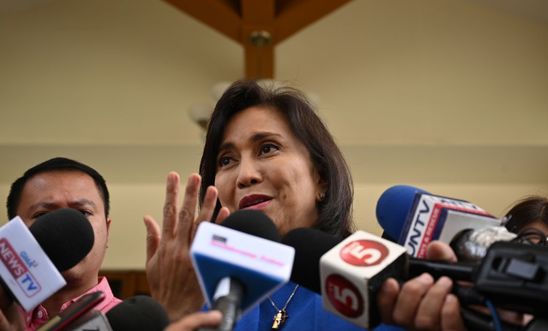
Press releases
Philippines: Vice President's insider account of 'war on drugs' shows failure of deadly campaign

Responding to Philippine Vice President Leni Robredo’s call on the government to review its anti-drug strategy, including by ending violent police operations, Joanne Mariner, Amnesty International’s Research Director for Southeast Asia, said:
“Vice President Robredo gave a damning insider account of the government’s murderous approach to the drug problem.
“This is yet more proof that the Duterte administration should address the problem through drug rehabilitation programmes rooted in communities, not through a brutal policy of extrajudicial killings.
“Robredo’s assessment gives credence to what Amnesty International and others have said time and again: the government’s ‘war on drugs’ is a war on the poor, marked by human rights violations and rampant impunity for the police and other high-ranking officials.
“Another approach is possible, one based on respect for human rights, human life and human dignity, which addresses the social conditions that give rise to illegal drug use and trade.
“President Duterte must end ‘Oplan Tokhang’ – his violent drug war policy – and initiate credible and independent investigations into past deadly operations, to obtain justice for countless victims of extrajudicial killings over the last four years.”
Operation Knock and Plead
Earlier today, Vice President Robredo publicly discussed her office’s findings during her 18-day stint as co-chair of the Inter-agency Committee on Anti-illegal Drugs.
She said the government has only been targeting small-time drug dealers, and that treatment and rehabilitation programmes are inadequate. She called on the government to end the deadly Oplan Tokhang (‘Operation Knock and Plead’), bring proceedings against more significant individuals, and improve its collection of drug-related data.
Robredo was appointed to the anti-drugs committee on 6 November last year. In the short time that she held the position, she demanded transparency and access to documents and intelligence reports. She also called on the government to address the policy of abusive drug watchlists and recommended the adoption of a health-based approach. On 24 November, President Duterte fired her from her role.
Thousands of people have been killed in a wave of state-sanctioned violence since the start of President Duterte’s presidency in 2016, many of which amount to extrajudicial executions.
Last July, Amnesty published a report, ‘They just kill’: Ongoing extrajudicial executions and other human rights violations in the Philippines ‘war on drugs,’ documenting how police commanders who previously supervised abusive operations in Manila were later transferred to Central Luzon and have continued to oversee brutal operations there.